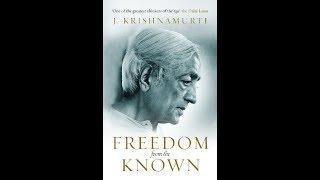Buddhist Teachings: The Fool & the Wise Person: So What Difference?
#Buddhism #Ignorance #Wisdom #Suffering #mindfulness
The Buddha traces the causes of suffering back to ignorance. The formal definition is ignorance of the four noble truths. But you can hear the four noble truths, learn about them, memorize them, and still be ignorant.
The definition could be translated in another way: We don’t see things in terms of the four noble truths. That’s getting closer. In other words, knowledge means that you look at your experience—what’s coming in through the eyes, ears, nose, tongue, body, and mind—and you see it in terms of where there’s stress, what’s causing the stress, what the cessation of stress would be, and how you would practice in order to bring about that cessation.
That’s asking you take on a framework that you don’t normally take. The normal framework is “me in the world, encountering things I like and don’t like, suffering from the things I don’t like.” That’s the way we tend to think about the issue.
The Buddha’s asking us to look at it in a different way. With each of those ways of looking, he says there’s a duty. When you see that something is stressful, you try to comprehend it. In other words, you watch it and try to understand it to the point where you gain dispassion for it, because as he defines the nature of suffering, it’s clinging, which is something you do. You’re not simply a passive victim of suffering. You’re actively doing it. Things you cling to, things that you hold dearly: Those are precisely the things you suffer from. So you’ve got to develop some dispassion for them. Otherwise, there’s no getting away from suffering.
As for the cause, craving, you want to abandon it. Craving for sensuality—in other words, enjoying sensual fantasies. Craving for becoming, wanting to take on an identity in this world so that you can get pleasures out of the world. And then craving for non-becoming: You find that your identity is not working well, so you want to destroy it. All those kinds of craving are to be abandoned.
The cessation is to be realized. And the cessation is defined, basically, as the abandoning of craving. So there are two layers right there: You abandon craving, and then you watch, observe, and realize that when you let go of the craving, suffering really does stop.
We develop the path so that we can put the mind in a position where it can see that happening. This is why we concentrate, taking the Buddha’s definition of right mindfulness as our frame of reference. In other words, you’re going to stay with the body right here, in and of itself. You’re not going to think about the body in the world, either your imaginary worlds or in the actual human world. You focus on: This is what it’s like to have a body right here."
Chapter 1. Right Next to Ignorance.
Chapter 2. So check and see for yourself!
Chapter 3. The Fool & the Wise Person Bāla-paṇḍita Sutta (SN 12:19)
Chapter 4. The Arrow Sallattha Sutta (SN 36:6)
- Category
- Buddhism




